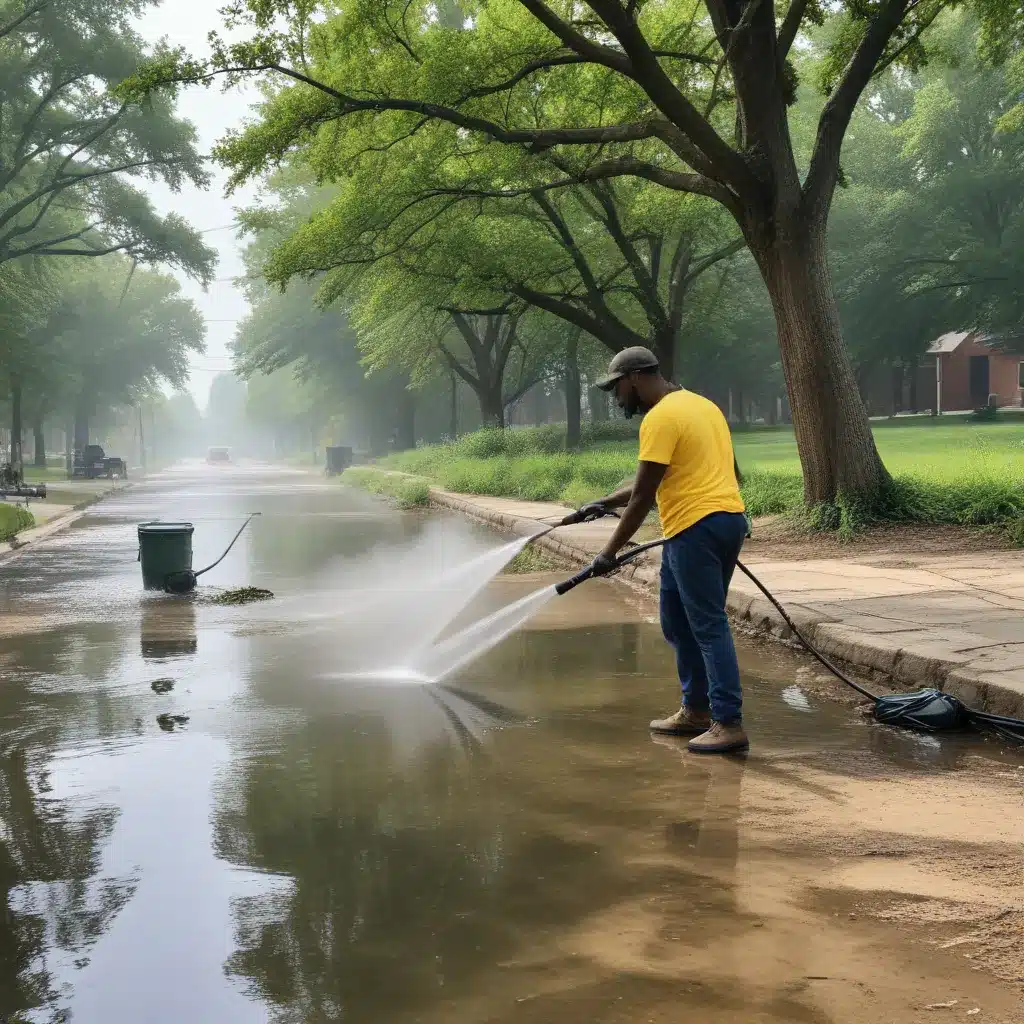
Navigating the Regulations: Pressure Washing in St. Louis
Pressure washing has become an essential tool for maintaining the appearance and longevity of residential and commercial properties in St. Louis. However, as the city grapples with the preservation of its urban natural habitats, it’s crucial to understand the local regulations and best practices surrounding this service. In this comprehensive guide, we’ll explore the legal landscape, cost-effective strategies, and eco-friendly approaches to pressure washing in the St. Louis area.
In the City of St. Louis, pressure washing activities are regulated under the Stormwater Management Ordinance. This legislation aims to protect the city’s waterways and natural environments from the potential pollutants and contaminants that can be introduced through improper pressure washing practices. The ordinance stipulates that all pressure washing operations must be conducted in a manner that prevents the discharge of any cleaning solutions, debris, or wastewater into storm drains, sewers, or natural waterways.
To ensure compliance, property owners and pressure washing service providers must adhere to specific guidelines. First and foremost, the use of harsh chemicals or detergents is strictly prohibited, as these substances can have a detrimental impact on aquatic ecosystems. Instead, the use of environmentally friendly, biodegradable cleaning products is strongly encouraged. Additionally, all wastewater generated during the pressure washing process must be contained and properly disposed of, either through the sanitary sewer system or by utilizing a water reclamation system.
Eco-Friendly Pressure Washing Techniques
In recent years, the demand for eco-conscious pressure washing solutions has grown exponentially, as St. Louis residents and businesses become increasingly aware of the importance of safeguarding the city’s natural habitats. To meet this demand, pressure washing service providers have developed a range of environmentally friendly techniques that prioritize the protection of local ecosystems.
One such approach is the use of waterless pressure washing systems, which eliminate the need for large volumes of water. These systems utilize specialized cleaning solutions and mechanical agitation to effectively remove dirt, grime, and other contaminants without generating significant wastewater. Not only do waterless systems reduce water consumption, but they also minimize the risk of cleaning solutions and debris entering storm drains or natural waterways.
Another eco-friendly option is the use of low-pressure washing techniques. While traditional high-pressure washing can be effective, it can also dislodge and disperse contaminants more readily, increasing the likelihood of them entering the local ecosystem. Low-pressure washing, on the other hand, is gentler on surfaces while still effectively removing dirt and grime. This approach reduces the potential for environmental harm while delivering satisfactory cleaning results.
For properties with access to natural or landscaped areas, water reclamation and filtration systems can be employed to capture and treat the wastewater generated during pressure washing. These systems filter out debris, oil, and other pollutants, allowing the clean water to be safely discharged or reused for irrigation or other non-potable purposes. By implementing water reclamation, property owners can minimize the environmental impact of their pressure washing activities.
Cost Considerations and Budgeting
The cost of pressure washing services in St. Louis can vary depending on the size of the property, the complexity of the job, and the specific techniques and equipment utilized. On average, residential pressure washing services in the St. Louis area range from $150 to $350 for a standard single-family home, while commercial properties can range from $500 to $2,000 or more, depending on the scale of the project.
It’s important to note that eco-friendly pressure washing techniques may incur slightly higher upfront costs compared to traditional methods. However, the long-term benefits of protecting the local environment and natural habitats often outweigh the initial investment. Property owners and managers should consider the following cost factors when budgeting for pressure washing services:
| Service | Average Cost (USD) |
|---|---|
| Residential Pressure Washing (single-family home) | $150 – $350 |
| Commercial Pressure Washing (small-medium business) | $500 – $2,000 |
| Eco-Friendly Pressure Washing Techniques | 10-20% higher than traditional methods |
| Water Reclamation and Filtration Systems | $1,000 – $5,000 (depending on property size) |
By factoring in the potential environmental impact and the long-term preservation of property value, many St. Louis residents and businesses are choosing to invest in eco-conscious pressure washing solutions, recognizing the importance of protecting the city’s natural habitats.
Partnering with Responsible Pressure Washing Providers
When selecting a pressure washing service provider in St. Louis, it’s crucial to work with companies that prioritize environmental stewardship and compliance with local regulations. Look for providers that:
- Utilize eco-friendly cleaning solutions: Ensure the company uses biodegradable, low-impact detergents and chemicals that are safe for the environment.
- Implement water conservation and reclamation practices: Inquire about the provider’s water management strategies, such as the use of water reclamation systems or waterless pressure washing techniques.
- Adhere to stormwater management regulations: Verify that the company is familiar with and compliant with the City of St. Louis’ Stormwater Management Ordinance.
- Offer training and certification for their technicians: Reputable providers should have technicians who are trained and certified in eco-friendly pressure washing best practices.
- Provide a detailed scope of work and cost breakdown: A transparent and thorough proposal will help you understand the services being provided and the associated costs.
By partnering with a responsible pressure washing service provider, St. Louis property owners and managers can ensure that their properties are maintained while minimizing the impact on the city’s precious natural habitats.
Conclusion
As the City of St. Louis continues to prioritize the preservation of its urban natural environments, the pressure washing industry has a crucial role to play in upholding eco-conscious practices. By understanding and adhering to local regulations, adopting environmentally friendly techniques, and collaborating with responsible service providers, property owners and managers can contribute to the safeguarding of St. Louis’ vibrant natural habitats.
To learn more about pressure washing services that align with the city’s sustainability initiatives, please visit https://pressurewashstlouis.com/. Our team of experts is dedicated to guiding you through the process of maintaining your property while minimizing the environmental impact.






